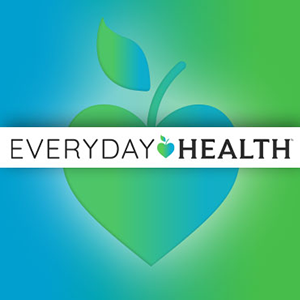Nasal Rinsing With Unboiled Tap Water Linked to Deadly Amoeba Infection

[ad_1]
Nasal rinsing, sometimes called nasal irrigation, is a common practice that involves using a neti pot or squeeze bottle to help clear the sinuses. Using unsanitized tap water for nasal rinsing, however, can increase the risk of rare but potentially deadly infections.
In recent years there have been multiple reports of fatal brain-eating amoeba infections due to the organism Naegleria fowleri. Now a new study suggests another amoeba could pose similar risks to people who use neti pots with unboiled tap water.
“Invasive acanthamoeba infections are rare,” says lead study author Julia Haston, MD, a lieutenant commander for the U.S. Public Health Service and medical epidemiologist in the Waterborne Disease Prevention Branch of the Centers for Disease Control and Prevention (CDC).
“Less than 15 people are diagnosed with these infections each year in the United States,” Dr. Haston adds. “However, they can be very serious and are often fatal.”
Acanthamoeba Infections Linked to Using Unboiled Tap Water for Nasal Rinsing
It’s often unclear how people get these infections because acanthamoeba live in many types of water and there are several ways they can be exposed, Haston says. It’s also possible that the amoeba enters the body through exposed cuts on the skin, or gets inhaled. The new study offers some of the first evidence that nasal rinsing may be one way people can get sick.
All of the people in the study had weakened immune systems, and this likely made them more susceptible to acanthamoeba infections, says Anthony Del Signore, MD, PharmD, an assistant professor and director of endoscopic sinus and skull base surgery at Mount Sinai Beth Israel in New York City.
“The risk would be rather low for such an infection to be seen in an immunocompetent individual,” says Dr. Del Signore, who wasn’t involved in the new study. “Would it be possible? Sure, but rather low.”
Despite the infection risk, there are many health reasons for nasal rinsing as long as you take the proper precautions, Del Signore says.
Always Boil Tap Water for Nasal Rinsing
“I tend to have our patients boil tap water or use distilled bottled water,” Del Signore says. “If they use tap water, boiling helps to boil off any chemicals or impurities and also helps with sterilizing water to remove any bacteria.”
What Are the Health Benefits of Nasal Rinsing?
Nasal rinsing can improve acute and chronic symptoms of sinusitis, seasonal allergies, the common cold, and other upper respiratory infections, Del Signore notes. It works by thinning nasal mucus; improving the health of the nasal lining; and removing things like bacteria, viral particles, allergens, and pollutants.
It’s also called saline rinsing because people usually add a saline solution to the sterilized water because it helps fight inflammation in the nasal passages.
The most common ways to do it involve using either a neti pot or a squeeze bottle to introduce the water and saline solution into the nasal passages. Doctors will often recommend this in addition to any medications needed to combat infections and inflammation, Del Signore says.
“The most effective way to use nasal irrigation is to use it once or twice daily when symptomatic, and also when not symptomatic as a preventive measure if one is prone to such illness,” says David Rabago, MD, a professor of family medicine at Penn State University College of Medicine in Hershey, Pennsylvania, who wasn’t involved in the new study.
“Nasal irrigation can reasonably be added to one’s routine hygiene, like brushing teeth or washing hands,” Dr. Rabago says. “Depending on the condition and severity, nasal irrigation can be a stand-alone therapy, or used alongside more conventional therapy, such as antibiotics or nasal steroid spray.”
[ad_2]




